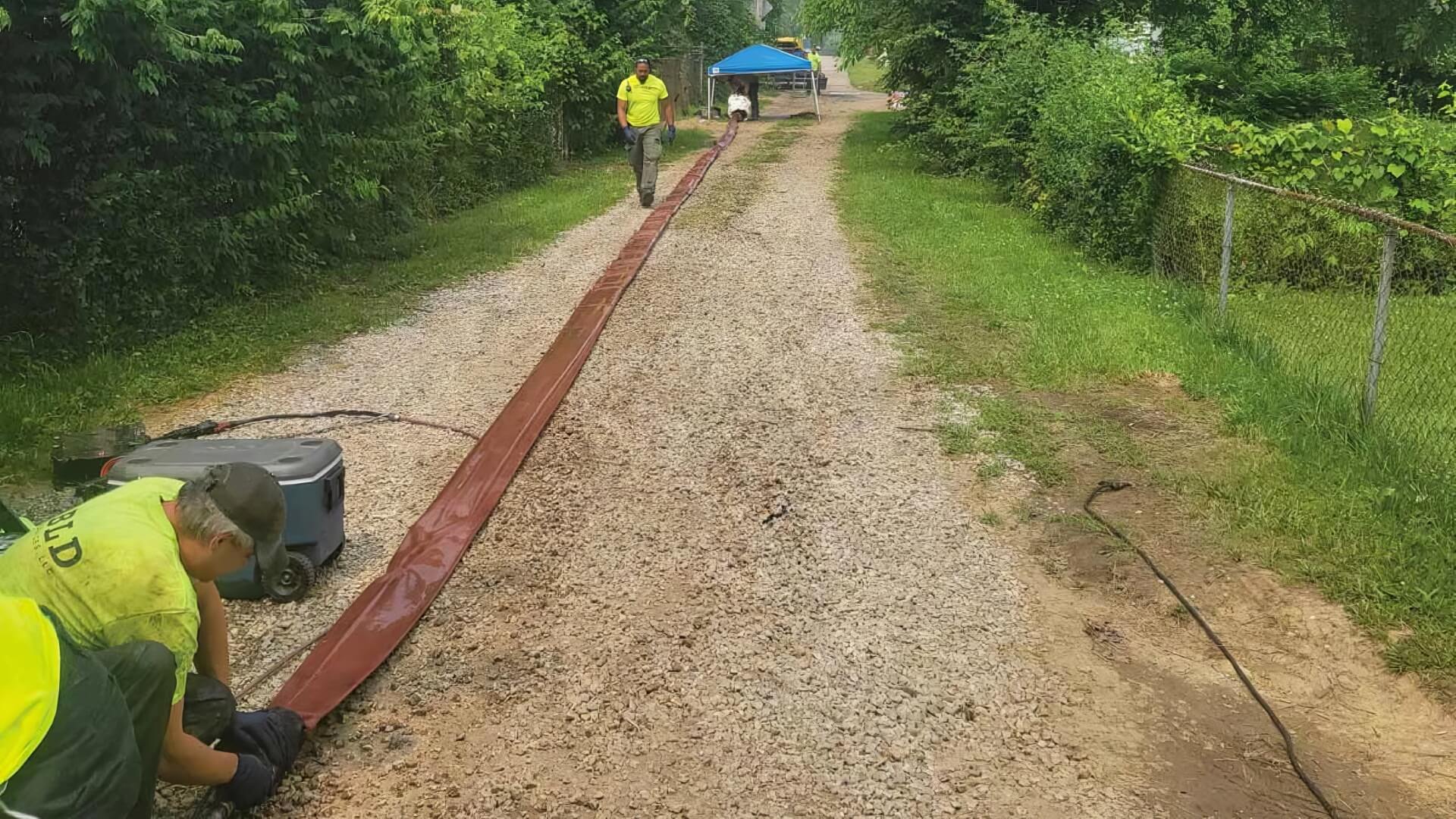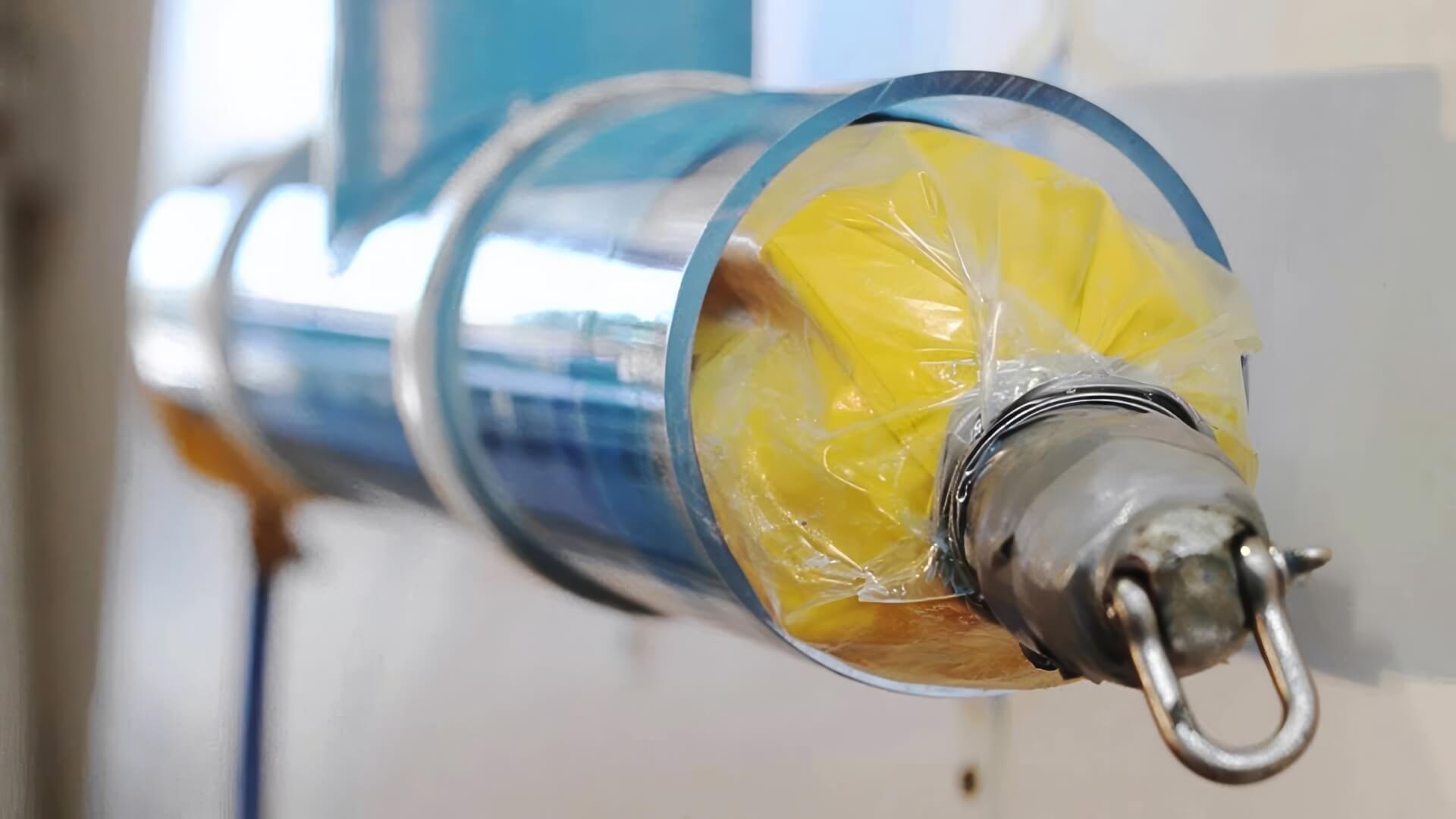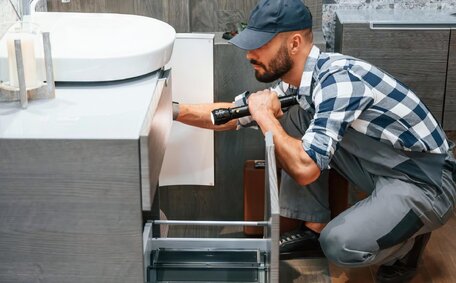Winter weather can significantly challenge your home’s hot water system. It’s essential to understand how to optimally prepare your water heater before the temperature drops.
Extreme cold may cause pipes to freeze and burst, power outages can disable electric hot water heaters, and increased demand could overburden your system.
At Padstow Plumbing, our experienced team can help get your hot water heater winter-ready, ensuring your comfort and system reliability. Having serviced the Padstow area for more than a decade, we’ve assisted many local homeowners in maintaining efficient and reliable hot water during Sydney’s coldest winters. Continue reading to learn how prepare your system with our advice on insulation, temperature control, freezing prevention, and maintenance.
Understand How Extreme Temperatures Affect Hot Water Systems
Extreme hot and cold temperatures can significantly impact the performance and longevity of your hot water system.
As the temperature of incoming cold water drops, gas hot water systems may become less efficient, making it harder to reach the desired hot water temperature.
This decrease in efficiency can lead to higher energy costs and may shorten the life of your heating element. Lowering your thermostat to 60°C can save energy and prevent damage, balancing cost and comfort.
The prospect of pipes freezing during winter temperatures is also problematic. Exposed pipes and outdoor fittings are especially susceptible to the harsh freezing conditions. Insulate all exposed water lines to avert problems, preserve warm air, and keep pipes from freezing or encountering issues.
Set your electric hot water heater’s thermostat to a minimum of 55°C to protect your system and reduce the risk of frozen pipes.
Preventative maintenance is crucial for winter preparedness, ensuring your water heater operates efficiently before the onset of cold weather. Engage a licenced plumber to scrutinise your system, shore up sensitive spots with insulation, and adjust the thermostat settings as needed, instead of trying to handle it on your own. Embracing these precautions will aid in providing a clear path of water through pipe networks, keeping your hot water system in top shape even during extreme weather scenarios.
Insulate Pipes and Water Heater
Insulating your hot water pipes and water heater is a key method to prepare your home for extreme cold weather. Here are some essential tips how to effectively insulate:
- Use preformed foam pipe insulation, available from our range, for all accessible hot water pipes. Make sure to get insulation with the proper diameter to snugly fit the pipe.
- For complex pipe sections, stock up on self-sealing foam and batteries for any necessary tools. Wrap the insulation around the pipe and seal the seam.
- Safeguard your hot water tank by insulating it according to the manufacturer’s directions. Many heaters have a precut jacket available. Ensure that insulation within the tank doesn’t cover the thermostat or pressure relief valve.
- Seal gaps at joints and around windows and doors with insulation tape to keep your home cosy and shield from strong winds and frosty drafts in winter.
- Insulate the first 3-5 feet of incoming cold water pipes with flood stop insulation to reduce heat loss as hot water travels to fixtures.
- Insulate any hose bibs and exterior pipes/faucets to understand how to prevent water pipes from freezing effectively. You can purchase insulated hose bib covers.
- Regularly check that insulation is intact each year before cold weather sets in to maintain warmth. Patch any rips, tears or gaps to keep the system safe and warm.
Effective insulation is key to retaining warmth in your hot water unit, preventing water pipes freezing during cold snaps, barring ruptures, and curbing energy expenses. This step is crucial for winterizing both your hot water system and overall home plumbing.
Adjust Thermostat Settings for Upcoming Weather
- Adjusting the thermostat settings prevents freezing and ensures an uninterrupted hot water supply in cold weather.
- For gas electric heaters, set to at least 130F/55C, although in some cases, setting between 140F-150F is advisable to account for colder groundwater temperatures.
- If your home will be vacant, adjust the temperature to prevent pipe freezing. Avoid setting above 71°C to mitigate scalding risks.
- Keep it set to your typical usage temperature.
Have a plumber verify your system’s temperature setting, considering type, age, usage, and local climate, to ensure optimal performance. Advanced planning and thermostat adjustment will help ensure reliable hot water all winter long.
Adjusting the thermostat settings prevents freezing and ensures an uninterrupted hot water supply in cold weather.Drain System if Property is Vacant
This prevents pipes and tanks from freezing and bursting while unoccupied.
Follow these steps to safely drain your water heater:
- Turn off power to the water heater at the circuit breaker.
- Shut off the water supply line connected to the tank.
- Open a hot water tap inside the house. This allows air into the plumbing as water drains out.
- Connect a garden hose to the tank’s drain valve and route it to a safe drainage area.
- Open the drain valve at the bottom of the heater. Gravity will drain the water into the hose.
- When water stops flowing, close the drain valve and disconnect hose.
- Leave your water supply shut off and power supply disconnected while premises are vacant.
Drain your tank and pipes fully to prevent any water from freezing and causing damage to the system’s components. This prevents costly damage from occurring while your property sits vacant all winter long.
Turn off powe>Shut off the water supply line connected to the tank.Open a hot water tap inside the house. This allows air into the plumbing as water drains out.Connect a garden hose to the tank’s drain valve and route it to a safe drainage area.Open the drain valve at the bottom of the heater. Gravity will drain the water into the hose.Arrange Regular Maintenance and Checks
To ensure your water heater’s efficiency through extreme weather, it’s wise to arrange professional maintenance on a regular basis.
Our licensed technicians will thoroughly examine your gas hot water system during maintenance, including pipes, valves, insulation, and other components. We clean and adjust components, check for leaks and wear, verify safety devices, and evaluate the pilot light and energy efficiency during maintenance.
If repairs are needed, our clients commend the swift and effective service we provide to restore your system.
Preventative maintenance is essential to minimize risks such as freezing, flooding, fires, and carbon monoxide leaks in water heating systems. It also reduces energy costs and maximises the lifespan of your hot water system. Trust Padstow Plumbing to take care of your unit, keeping it safe and efficient for your family through extreme weather and beyond.
Be Aware of Common Winter Hot Water Issues
Cold winter weather can bring some common hot water system problems. Be aware of these issues so you can take preventive action or address them promptly if they occur:
- Inefficiency - Colder incoming groundwater makes it harder for your heater to raise the temperature. Such conditions may necessitate adjusting settings to ensure sufficient water heating, particularly with tankless heaters. Set your thermostat a bit higher to compensate.
- Increased wait times - High demand from showers, laundry, etc. can make the tank drain faster than it can heat new water. Consider scheduling heavy usage for warmer parts of the day.
- Lower water pressure - Partial freezing in pipes restricts flow. Insulate vulnerable pipes and fixtures.
- A total hot water outage may occur if freezing conditions persist, halting water flow. Take preventive measures like insulation.
- Excessive demand on heating elements may lead to overuse and potential failure, posing a fire hazard. Service your heater regularly; indeed, they often do more than just heat—they maintain the safety of your home.
- Frozen pipes - Burst pipes are common when water inside freezes, discover how thaw them safely before they expand. Insulate, seal draughty areas, and drip faucets.
If you experience any loss of hot water, reach out to us - our 24/7 service will restore your hot water promptly. Preventative maintenance can also help maximise efficiency and minimise winter problems. Contact Padstow Plumbing to schedule an inspection before extreme cold hits.
Take Preventive Measures to Maintain Efficiency
You can take several preventive steps to keep your hot water system operating efficiently through extreme weather conditions:
- Have a professional install a Solar hot water heater if replacing your ageing heater for energy efficiency. New heat pump or tankless water heaters often have built-in freeze protection.
- Apply heat tape and insulate pipes and heaters properly to prevent heat loss and freezing.
- Seal air leaks around plumbing access panels, basements, crawl spaces, etc.
- In an area prone to freezing temperatures, disconnect and drain outdoor pipes and hoses.
- Set the thermostat high enough to stay warm in winter but not so high as to waste energy.
- Schedule an annual tune-up to inspect and service the system before winter.
- Make sure your heater is monitored for signs of strain like increased recovery times.
- Reduce usage during peak cold periods by running laundry at night, limiting shower lengths, etc.
Preventative steps can enhance your heating system’s performance, avoiding downtimes from harsh weather. Get in touch with Padstow Plumbing for a system assessment to ensure readiness for the extremes of cold and heat.
Call a Professional Plumber for Help
Should any issues arise, or if you harbor questions on fortifying your hot water system against severe weather, don’t hesitate to place a call to us for expert guidance. The experienced technicians at Padstow Plumbing are ready to help assess your system and make recommendations to optimise efficiency and prevent weather-related breakdowns. With over 10 years of serving Padstow homeowners, you can trust Padstow Plumbing to keep your hot water running smoothly through any weather conditions.
For repairs, maintenance, upgrades, or advice, contact our team at 1300 349 338 or jobs@padstowplumbingservices.com.au at any time.






